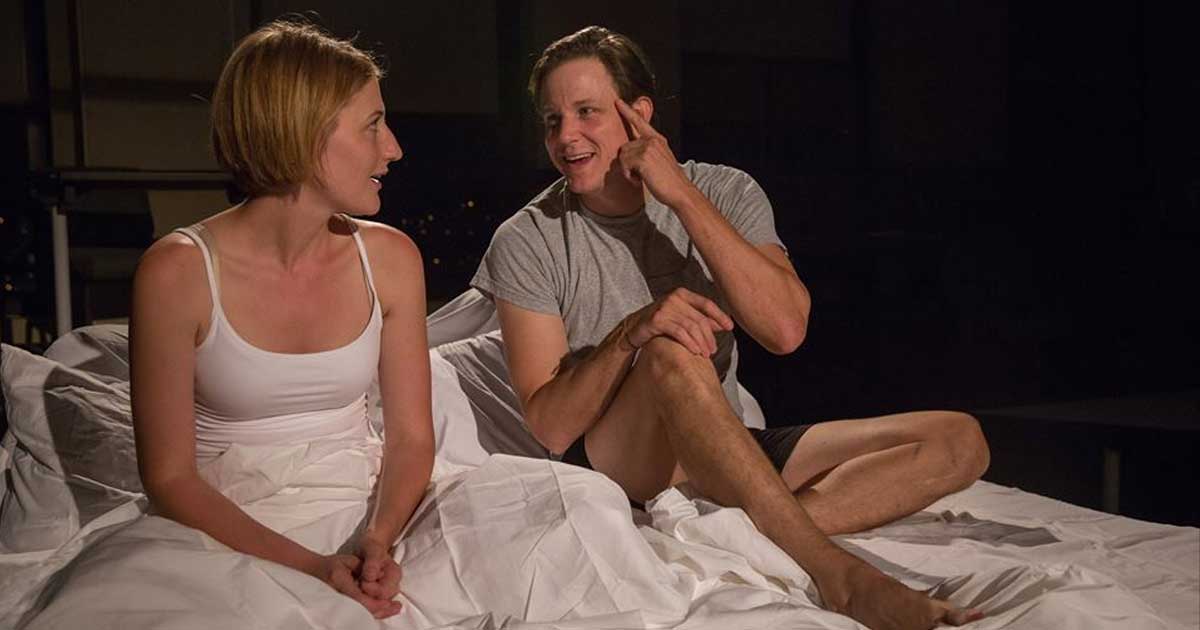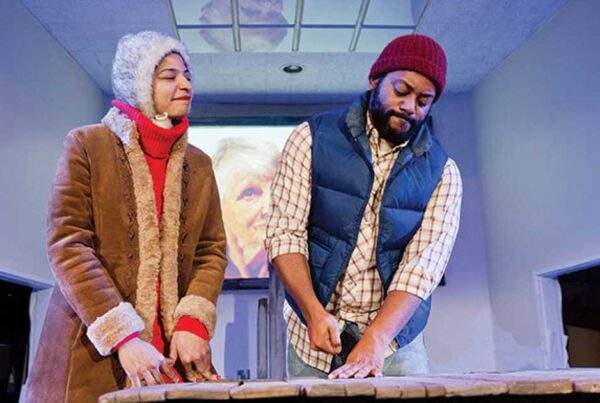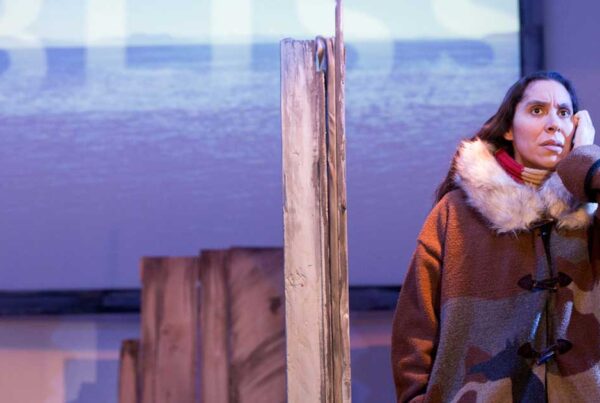
Pittsburgh Post-Gazette – Quantum Theatre invites you to join them in wrestling with “The Hard Problem,” Tom Stoppard’s 2015 play that asks tough questions about biology and consciousness, science and faith.
Karla Boos’ company has previously presented entries in “the subset of the Stoppard canon” before, with “Hapgood” and “Indian Ink.” For “The Hard Problem,” which like the other two has a female protagonist, she has enlisted director Rachel M. Stevens.
Known mostly for musicals, Ms. Stevens’ most recent work helped prepare her for the Quantum experience of creating environments for each production.
The director joined the Tony-nominated “Natasha, Pierre & The Great Comet of 1812” as associate director for its transfer to Broadway, where surround seating and immersive staging were woven into the fabric of the show. And last year, the Point Park grad returned to Pittsburgh and collaborated with scenic designer Lindsey B. Mayer on the ingenious staging for Front Porch Theatricals’ production of “Floyd Collins.”
To solve “The Hard Problem” from a design point of view, Ms. Stevens, Stephanie Mayer-Staley and the Quantum team have taken over the fifth floor — and then some — of the Energy Innovation Center in the Lower Hill. The experience begins well before audience members sit down, taking advantage of the high-tech building’s science labs and other pathways to the “dueling themes of clinical rationality and chaotic humanity.”
Mr. Stoppard’s play distills those concepts through Hilary (Carnegie Mellon alumnus Alex Spieth), a young psychologist working in a brain science institute. She risks her career and ridicule from colleagues to confront the “hard problem” of her field: If we are nothing more than matter and chemical reactions, then how can we explain consciousness?
Ms. Stevens came highly recommended by “Natasha” director Rachel Chavkin, who sent “this really beautiful letter” to Ms. Boos. “Then I was thinking about this show, and I learned who Rachel was from other ways, ‘Floyd Collins’ and how much people loved working with her, and then it came to pass that I decided a woman should direct this play, a younger woman, a woman I don’t know so well, which was different for me.”
After one long phone call, in which the two women became acquainted while discussing the play, Ms. Stevens hung up thinking she might hear back about some future project. But soon thereafter, “I got an email that said, ‘Let’s do this.’”
The first time they met in person, after they had already been corresponding about the play, was in June, when Ms. Stevens came to see her brother, Marcus Stevens, starring in “An Act of God” for Pittsburgh Public Theater.
In August, the Philadelphian married fellow Point Park grad Joey Scarillo — the former Pittsburgh Playhouse stage manager who now works for the Grey advertising agency in New York. During the run up to “The Hard Problem,” the couple is residing with Mr. Scarillo’s parents in Bethel Park.
The play catches Mr. Stoppard, who has four best-play Tony Awards, in mid-thought.
“This is absolutely his journey,” Ms. Stevens said. “He has been interviewed saying he has been preoccupied with the idea of consciousness for quite some time. And he said he wrote a play about that, and he wrote a play about the market and then thought, ‘These don’t belong separately. How can we build a world where these both exist?’ “
The play that resulted presents scenarios that raise questions evidently eating at the playwright. For example, Hilary’s co-worker Amal correctly predicts the stock market crash, but he is off in his timing and his employer takes a financial hit, which drops Amal down the company ladder. Hilary, meanwhile, works on an experiment to measure the compassion in children. She also is dealing with personal issues that collide with scientific notions about randomness vs. the guidance of a higher power.
“What I love so much about the collision of those ideas is using the scientific theory and the fundamentals of the market to talk about the human experience,” Ms. Stevens said. “The theories are just the icing on the cake. It’s the world these people live in, but what they are pursuing is an understanding of soul.”
That kind of talk is what persuaded Ms. Boos to take on “The Hard Problem” and work with Ms. Stevens.
“It really took Rachel’s connection to the emotions of these people whose world is science,” Ms. Boos said. “She articulated that, and that’s what I connect to in Stoppard. It’s all about desires — for all the flashy intellectualism that other people may focus on, there are such rich characters who are very driven by desire.”
In the days before the finishing touches were put on the space that will become the newest Quantum theater, Ms. Stevens was taking it all in, and enjoying the playful nature of the design that was falling into place.
When she was presented with “The Hard Problem,” the director recalled that she began to conjure images of what it might look like, “because that’s my lens on life and as an artist.”
And she heard something, too.
“With this play, the first thing I saw wasn’t the mechanics of the language, it wasn’t the scientific terminology,” she said. “I went immediately to the heartstrings of what was happening, and I heard music.”




